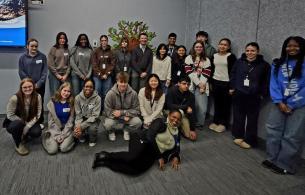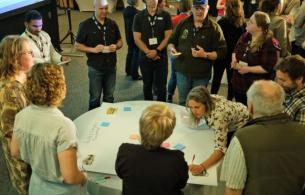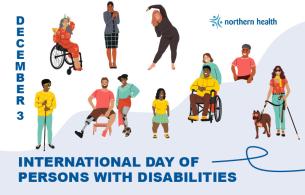I’m 61, and I was just diagnosed with attention deficit hyperactivity disorder, better known as ADHD.
You may wonder why it matters at my age, and in some ways, you might just have a point. After all, I’m lucky enough to be retired, so dealing with ADHD at work (or at school) is no longer a concern.
But for me, there were still significant benefits of getting a diagnosis:
- Understanding my lifelong quirks and sensitivities. It was great to understand why I’ve always been so fidgety and so easily distracted, and why I sometimes react emotionally without thinking.
- Forgiving myself. Things I’ve thought of all my life as character flaws (procrastination, inability to sit still, lack of follow-through, etc.) are in fact signs of ADHD – my brain is just wired differently. This is HUGE.
- Fulfilling my potential. Now that I have a diagnosis, I can consciously manage my ADHD. I still have (I hope) several decades left on this earth, and there’s so much I still want to accomplish!
How I found out
A close relative was recently diagnosed with ADHD. When he described his symptoms, I realized that many of the lifelong issues I’d experienced fit the same pattern. He said the medication gave him noticeably better focus at work, and most excitingly, the ability to set personal goals and follow through.
“You can decide to work out,” he said, “and then … [dramatic pause] … you actually go and work out!” We exchanged stunned glances.
I told my family doctor about my relative’s diagnosis, and that I suspected I had ADHD too. She asked me a few questions, then had me take a diagnostic test, which confirmed it. Mindblowing!
What’s ADHD?
ADHD can impact success and happiness at school, at work, and in your personal life. The Centre for ADHD Awareness, Canada presents the following basic facts in their document, “What you need to know about ADHD”:
- ADHD is recognized by all major medical associations and government health agencies as a “real” medical disorder.
- ADHD is a neurodevelopmental disorder. It has been documented for more than 200 years.
- ADHD occurs in at least 4% of adults and 5% of children worldwide.
- Eighty percent of children diagnosed with ADHD continue to qualify for a diagnosis in adolescence and at least 60% continue to be impaired by symptoms in adulthood.
- ADHD remains under-recognized and under-diagnosed and misdiagnosed in Canada.
- All forms of attention regulation are impaired in ADHD. Those with ADHD can over-focus and have difficulty breaking their focus, if something is stimulating, as much as they have problems with under-focusing.
What it’s like having ADHD as a student
To be diagnosed with ADHD, you need to have shown symptoms in childhood. I definitely qualify: My family used to call me “Tigger” after the energetic, fidgety character in A.A. Milne’s “Winnie the Pooh” books. I was also known as “the absent-minded professor” thanks to my daydreaming, messiness, and disorganization.
I did well in elementary school, skipping Grade 1 because I could already read. I was naturally interested in ideas, and I wasn’t disruptive, so my vagueness, distractibility, and disorganization were the only other clues – and nobody picked up on them.
In high school, I did well in the subjects that came naturally to me, winning school literature and language prizes and scoring in the top 1% in North America on an English placement test. At the same time, though, I was failing chemistry, math, and physics. (Pro tip: On a physics test, your writing ability won’t save you!) Any studying was done at the last minute (if at all), and the pain of disappointing my parents and teachers – and myself – was all too familiar.
At university, things got even worse. The excitement of starting new projects or courses would get me going, but I couldn’t figure out how to follow through or study consistently. But thanks to my writing ability and many all-nighters, I managed to squeak through and graduate.
What it’s like to have undiagnosed ADHD as an adult
People who didn't know me when I was younger think I'm naturally organized, but it’s 100% a learned skill that requires reminders in multiple calendars, sticky notes, alarms, timers, lists, and a great deal of thought and effort. Keeping my life organized and on track is a full-time job that eats up most of my waking hours; I don’t have much time to have fun or relax, even though I'm retired.
At work, I always found meetings difficult and distracting: With all the different personalities, moods, and emotions in the room, it was hard to know what to pay attention to (plus, it was hard to sit still!). Once the pandemic hit, Zoom or phone meetings were easier. However, I still took detailed notes in every meeting as a way to force myself to focus.
Unusually, my physical hyperactivity continued into adulthood. I still can’t understand how other people can stand to sit for so long during movies, dinners, or long flights. A few years back, I walked laps on the plane most of the way from Toronto to Barbados, and former colleagues will remember my standing desk, home treadmill desk, and frequent standing breaks in meetings.
I’ve always been very distracted by sounds, lights, and the feel of my clothing. This is a fairly big difference between me and other people, and it's sometimes inconvenient. Noises are especially distracting -- I can't not attend to them. Sometimes I wish I could turn off my ears. In my 20s, I used to get a lot of ear infections; I always enjoyed them, because I felt so much calmer thanks to my plugged-up ears.
Luckily, I’ve been happily married for 33 years to an easygoing man who's extremely tolerant of all my quirks. For example, he helps me by using headphones when he watches videos, and he plays his piano and guitars in a soundproof room. I can’t express how much I appreciate this!
Exploring lifestyle changes and medication
My wise, compassionate family doctor has been an outstanding source of support and information. She suggested the following lifestyle tips for coping with ADHD:
- Getting good sleep. "This is key,” she says.
- Exercising regularly. This helps with hyperactivity, and also boosts the brain chemicals that help you focus.
- Avoiding sugar, caffeine, and processed meats.
- Practicing mindfulness.
- "Chunking", or breaking down tasks into smaller sections. "If it's too hard to start a task, that means the first step is too big," she says.
- Using calendars to help plan and stay on track.
As well, she suggested that cognitive behavioural therapy could help with my tendency to react emotionally without thinking (my long-suffering husband knows all about this!). She explained that this may be due to ADHD issues with attention, memory, and organization; in other words, my outbursts are not a mood problem, they’re a reaction.
"In ADHD, the space between the gut reaction and the outer reaction – the filter – is harder to steady,” she says.
According to Dr. Edward M. Hallowell, who has written multiple books on ADHD, lifestyle changes, although helpful, can take you only so far.
In a Q & A summary of one of his books with National Public Radio, he said, “Research shows that medication is the single most effective treatment for ADD. It works for 80 to 90 percent of people who try it. When it works, it increases mental focus, which leads to improved performance in all domains of life."
My family doctor supports this idea. We’re currently trialing medications, but haven’t landed on the right one yet. I’m excited to see what the future holds!
Finally, if you think you might have ADHD – regardless of your age – please talk to your health care provider. It could change your life.
Resources:
- The Centre for ADHD Awareness, Canada provides general information and offers webinars, courses, coaching, and support groups, plus resources for individuals, families, and health care providers.
- "Additude" magazine offers symptom checkers, free downloads for printing and sharing, a podcast, and a newsletter, as well as free online webinars.
- The Kelty Mental Health Resource Centre, part of BC Children’s Hospital, provides information for children living with ADHD and their caregivers.
- The Canadian ADHD Resource Alliance, a site for medical, health care, and research professionals, provides assessment forms, medication advice, and more.
- Any books by Dr. Edward Hallowell are strongly recommended. They include
- “ADHD 2.0”
- The “distraction” series, including “Driven to Distraction,” “Married to Distraction,” and “Delivered from Distraction”
- “Super Parenting for ADD: An Innovative Approach to Raising Your Distracted Child”
- And more!














Comments
Anonymous says
Do we have any support groups in PG, for older adults with ADHD?
Thanks so much.
I also struggle with ADHD
Would be a great conversation as I too have felt the stigma and judgement of being the “odd” or “weird” person in any situation.